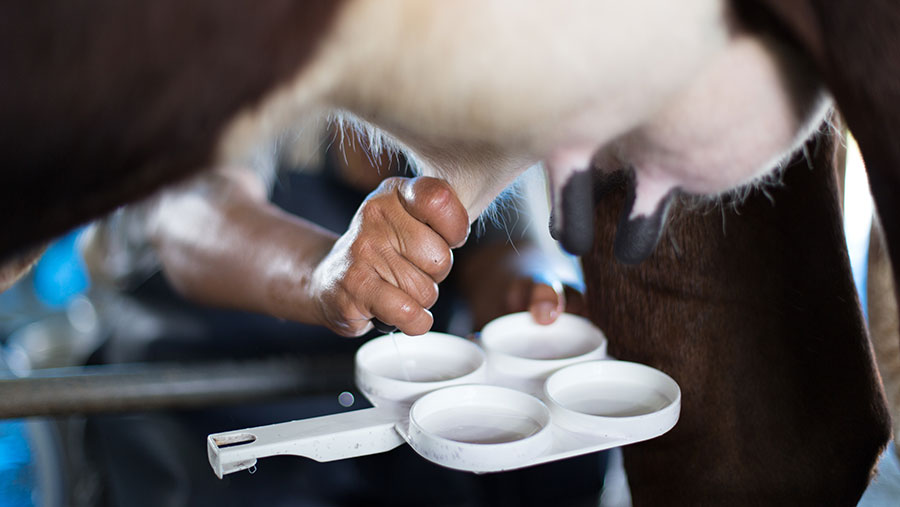Mastitis antibiotics shortage likely, say chief vets
 © Adobe Stock Photo
© Adobe Stock Photo Dairy farmers have been warned about a potential shortage of mastitis treatments after six key antibiotic products were temporarily withdrawn from sale.
A spokesman for medicine trade body the National Office for Animal Health (Noah), said the withdrawals were due to a perfect storm of causes.
There has been a combination of products failing tests and difficulties in obtaining component ingredients, the spokesman said.
Strict testing of these medicines means every year some are withdrawn temporarily as they fall outside quality standards, he explained.
See also: How to dry off cows to treat mastitis successfully
The regime is so precise that minute discrepancies mean products can fail safety or quality checks.
“This year, we have also seen a disruption to component supply which has compounded the problem,” he said.
A list of mastitis products, published on the Veterinary Medicines Directorate (VMD) website, suggested several medicines would not be available until well into the summer.
Antibiotics withdrawn from sale |
|
| Product | Anticipated resolution date |
| Synulox Lactating Cow Intramammary Suspension | May/June 2020 |
| Tetra-Delta Intramammary Suspension | May/June 2020 |
| Multiject IMM Intramammary Suspension | May 2020 |
| Albiotic 330mg/100mg Intramammary Solution | End of March 2020 |
| Mastiplan LC, 300mg/20mg Intramammary Suspension | End of June 2020 |
| Cobactan MC Intramammary Suspension for Lactating Cows | End of June 2020 |
A statement by the VMD reminded vets and farmers to consider the likely quantities needed, and to purchase appropriately.
Where no products are available in the UK, the VMD suggested vets could be permitted to import medicines.
This, it said, would only be allowable where the vet could demonstrate attempts to find suitable UK products had been unsuccessful.
Cost or convenience are not considered suitable justification. There must be a need to tackle a precise pathogen, with an appropriate antibiotic, in a particular situation, the VMD said.
It added that vets and farmers must also show that practical steps had been taken to combat disease.
Antibiotics should not be used to compensate for poor hygiene or inadequate husbandry and biosecurity measures, the VMD warned.
The British Veterinary Association (BVA) added that it was aware of a supply shortage of a number of intramammary antibiotics for lactating cows.
James Russell, BVA junior vice-president, told Farmers Weekly: “There is always a concern that if vets cannot get hold of certain medications, it could have an impact on animal health and welfare.
“We would advise farmers to consult their vet in case of concerns and follow their advice. We will be keeping our members closely informed of any further developments.”
